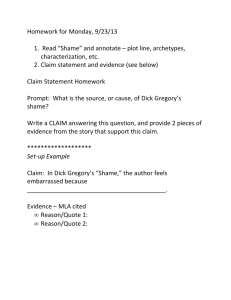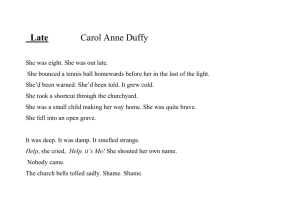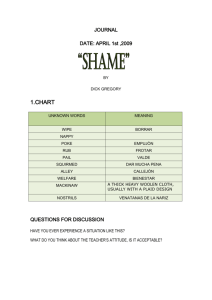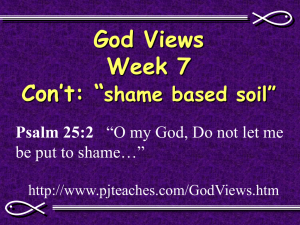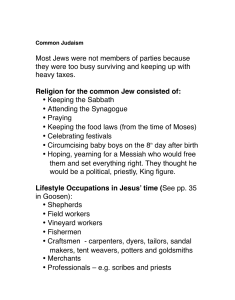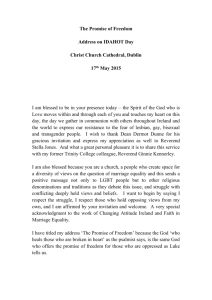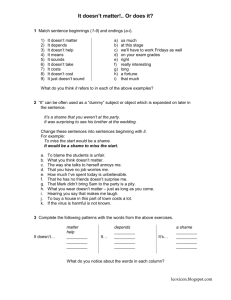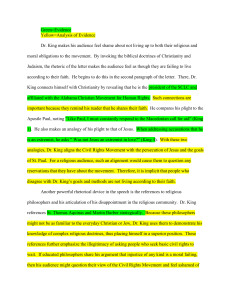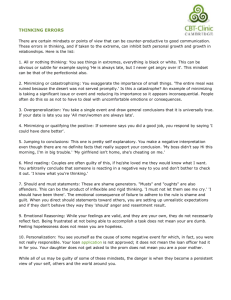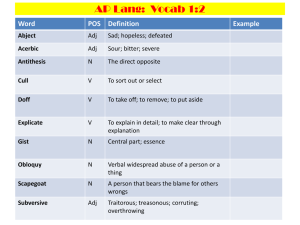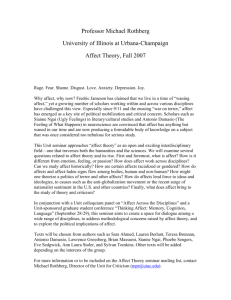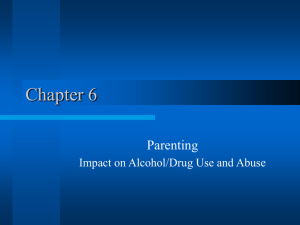Prepare for final Exam
advertisement
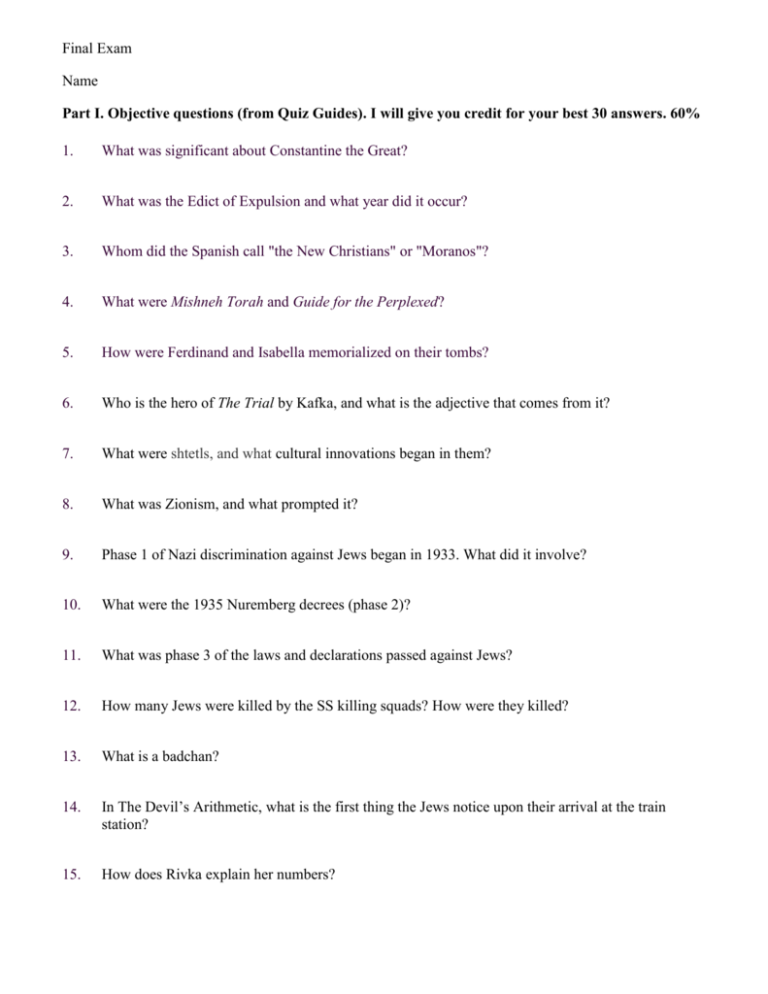
Final Exam Name Part I. Objective questions (from Quiz Guides). I will give you credit for your best 30 answers. 60% 1. What was significant about Constantine the Great? 2. What was the Edict of Expulsion and what year did it occur? 3. Whom did the Spanish call "the New Christians" or "Moranos"? 4. What were Mishneh Torah and Guide for the Perplexed? 5. How were Ferdinand and Isabella memorialized on their tombs? 6. Who is the hero of The Trial by Kafka, and what is the adjective that comes from it? 7. What were shtetls, and what cultural innovations began in them? 8. What was Zionism, and what prompted it? 9. Phase 1 of Nazi discrimination against Jews began in 1933. What did it involve? 10. What were the 1935 Nuremberg decrees (phase 2)? 11. What was phase 3 of the laws and declarations passed against Jews? 12. How many Jews were killed by the SS killing squads? How were they killed? 13. What is a badchan? 14. In The Devil’s Arithmetic, what is the first thing the Jews notice upon their arrival at the train station? 15. How does Rivka explain her numbers? 16. What does Emmanuel Ringelblum, Jewish historian, claim were the only victories of the camps? 17. In Echo in My Blood, Weisman finds no trace of his grandfather's name among his former holdings in Mala Viska except a vague reference to a post-pogrom auction. Why not? 18. Weisman believes his American audience of immigrants has collectively learned to "mythologize and tidy up the past." What does he mean by that? 19. From All But My Life, Explain the terms Betriebsleiter and Spinnerei? 20. What turn in the war causes the march to Czechoslovakia? 21. Gerda writes, “Survival is both an exalted privilege and a painful burden." What does she mean by this? 22. In the same year the US freed Cuba, which other nation did it colonize? 23. In April 1919, what criteria did Dzerzhinsky use to imprison people in work camps? 24. Where have concentration camps been used since Hitler? 25. At the 1904 World’s Fair, Skiff hired three American anthropologists to create an exhibit of what? What did it contain? 26. Who "paraded" in Roosevelt's 1905 inauguration, and what did he ask Roosevelt? What was the reply? 27. In Part I of The Reader, How does Michael begin to "betray" Hanna? 28. Why does Michael consider himself "guilty"? 29. What dilemma does Michael consult his father about? What, according to his father, is Michael's responsibility? 30. As a legal historian, what belief does Michael hold and then dismiss as a "chimera"? Why? 31. In The Shawl, When Magda is thrown against the fence, to what is she compared? 32. Why does Rosa deny speaking Yiddish? 33. Why does Rosa feel shame in front of Persky? 34. Why is Rosa frightened when she can't escape the beach? 35. Rosa tells Magda, "No lies come out of me to you." Is she telling the truth? Why or why not? Go to the next page for Part 2 Part II. Essay (40%). You can type your essay in the space below, or type it elsewhere and copy it into the box below. When Cornelius, the protagonist from “Love Enough,” in The Girl in Hyacinth Blue, imagines telling the narrator about the painting, he repeats to himself, “I will not die from shame.” One could say that shame is the single linking experience of all the characters we have encountered in this course, whether fictional or historical. Those who fear others oppress in part out of shame and the fear of it. Those who commit the terrible crimes we’ve read about, or who facilitate those crimes, or who profit from them, use shame to dehumanize others. Immigrants who come to America reinvent themselves to evade shame. Those who survive feel shame, as do those who inherit the legacy of former atrocities, whether from victims or perpetrators. Even those who look away from the suffering of others are to some extent, as Michael says in The Reader, “guilty.” Write a thoughtful, detailed essay using as many examples as you can of the problem of shame. Be sure that you include “The Shawl” and the last short story we read, “Love Enough.” When possible, quote from the texts (more specific examples will strengthen your argument). Avoid simply summarizing the stories. In your conclusion, speculate about whether we, too, who may have no direct connection to the holocaust, have cause for shame. Why or why not?
